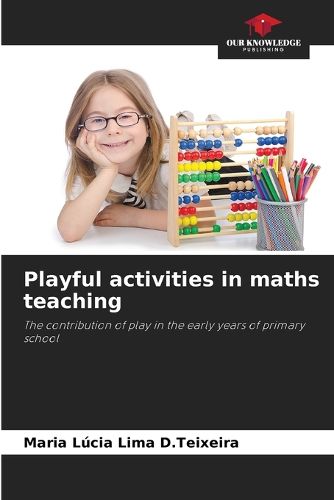Readings Newsletter
Become a Readings Member to make your shopping experience even easier.
Sign in or sign up for free!
You’re not far away from qualifying for FREE standard shipping within Australia
You’ve qualified for FREE standard shipping within Australia
The cart is loading…






In addition to contributing to and influencing the education of children and adolescents, playful activities enable healthy growth and enrich teaching and learning, developing logical, social and moral reasoning. At school, the use of play is characterised as an important pedagogical resource in the search for effective student involvement, active, critical and reflective participation. This book invites readers to learn about the contributions of Playful Education in the school context, applications and experiences of mathematical games. By exploring and describing learning theories, this book offers an analysis of the success of play education in maths teaching. Although we know that the teaching of maths is considered to be a very complex subject, playfulness as a pedagogical tool can make the content more flexible, in order to relate the systematic paths transmitted by the educator and provide the student with their own paths in the construction of mathematical knowledge. I recommend this book as important reading for education professionals, pedagogy students and maths undergraduates, and I wish you all a pleasant read! Lucia Diogenes
$9.00 standard shipping within Australia
FREE standard shipping within Australia for orders over $100.00
Express & International shipping calculated at checkout
In addition to contributing to and influencing the education of children and adolescents, playful activities enable healthy growth and enrich teaching and learning, developing logical, social and moral reasoning. At school, the use of play is characterised as an important pedagogical resource in the search for effective student involvement, active, critical and reflective participation. This book invites readers to learn about the contributions of Playful Education in the school context, applications and experiences of mathematical games. By exploring and describing learning theories, this book offers an analysis of the success of play education in maths teaching. Although we know that the teaching of maths is considered to be a very complex subject, playfulness as a pedagogical tool can make the content more flexible, in order to relate the systematic paths transmitted by the educator and provide the student with their own paths in the construction of mathematical knowledge. I recommend this book as important reading for education professionals, pedagogy students and maths undergraduates, and I wish you all a pleasant read! Lucia Diogenes